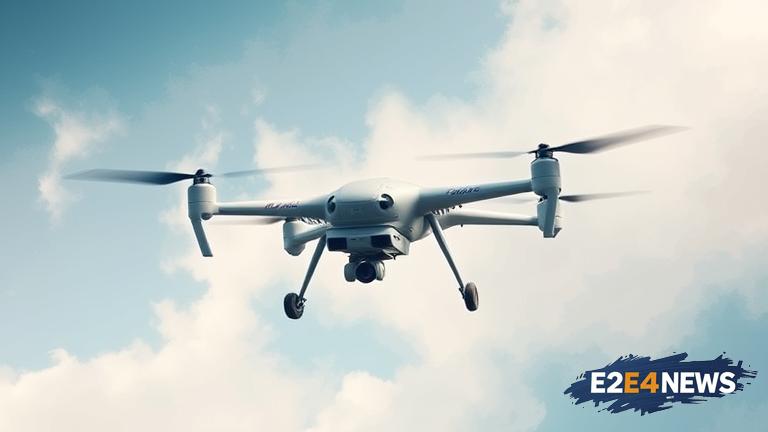The UK’s Project Asgard, a cutting-edge autonomous systems initiative, has taken a major leap forward with the completion of live trials in Estonia. The trials, which were conducted in collaboration with the Estonian Defense Forces, aimed to test the capabilities of autonomous systems in a real-world environment. The project’s focus on autonomous systems is driven by the need for more efficient and effective defense solutions, and the UK’s Ministry of Defence is investing heavily in this area. The live trials in Estonia provided a unique opportunity for the project team to assess the performance of autonomous systems in a variety of scenarios, including surveillance, reconnaissance, and combat operations. The trials also enabled the team to evaluate the systems’ ability to operate in a network-centric environment, which is critical for future defense applications. The success of the trials has significant implications for the future of defense, as autonomous systems are expected to play an increasingly important role in military operations. The UK’s Project Asgard is at the forefront of this development, and the project’s progress is being closely watched by defense experts and industry leaders around the world. The project’s use of artificial intelligence, machine learning, and data analytics is also noteworthy, as these technologies are expected to be key enablers of autonomous systems in the future. The Estonian Defense Forces’ participation in the trials highlights the importance of international cooperation in the development of autonomous systems, and the UK’s collaboration with Estonia is seen as a model for future partnerships. The trials also demonstrated the potential for autonomous systems to enhance situational awareness, improve decision-making, and reduce the risk of casualties in combat operations. Furthermore, the project’s focus on autonomous systems is expected to have significant benefits for the UK’s defense industry, as it will drive innovation and create new opportunities for businesses and entrepreneurs. The UK’s Ministry of Defence has stated that the development of autonomous systems is a key priority, and the success of Project Asgard is seen as a major step forward in this area. The project’s progress is also expected to have significant implications for the future of warfare, as autonomous systems are likely to play an increasingly important role in military operations. The use of autonomous systems is expected to enhance the effectiveness of military operations, while also reducing the risk of casualties and improving situational awareness. The project’s focus on autonomous systems is also expected to drive innovation in areas such as artificial intelligence, machine learning, and data analytics. The UK’s collaboration with Estonia on Project Asgard is seen as a model for future partnerships, and the project’s success is expected to have significant benefits for the UK’s defense industry. The project’s progress is being closely watched by defense experts and industry leaders around the world, and the UK’s Ministry of Defence is expected to continue to invest heavily in the development of autonomous systems. The success of Project Asgard has significant implications for the future of defense, and the project’s focus on autonomous systems is expected to drive innovation and create new opportunities for businesses and entrepreneurs. The project’s use of artificial intelligence, machine learning, and data analytics is also noteworthy, as these technologies are expected to be key enablers of autonomous systems in the future. The UK’s Project Asgard is a significant development in the field of autonomous systems, and the project’s progress is expected to have major implications for the future of defense. The project’s success has demonstrated the potential for autonomous systems to enhance situational awareness, improve decision-making, and reduce the risk of casualties in combat operations. The UK’s Ministry of Defence has stated that the development of autonomous systems is a key priority, and the success of Project Asgard is seen as a major step forward in this area. The project’s focus on autonomous systems is expected to drive innovation in areas such as artificial intelligence, machine learning, and data analytics, and the UK’s collaboration with Estonia is seen as a model for future partnerships.





